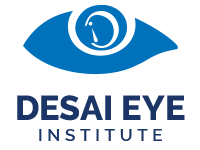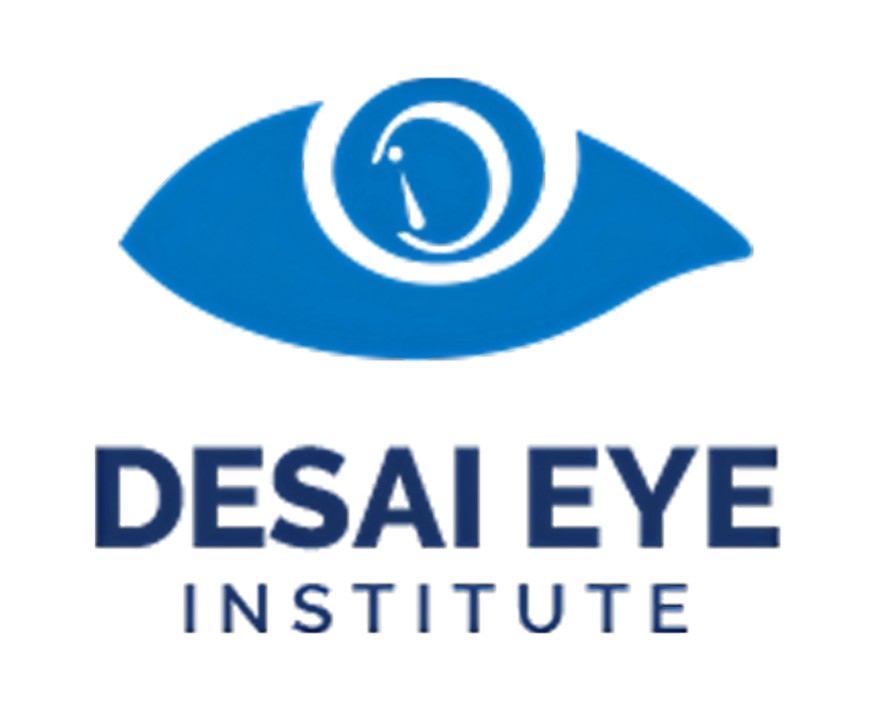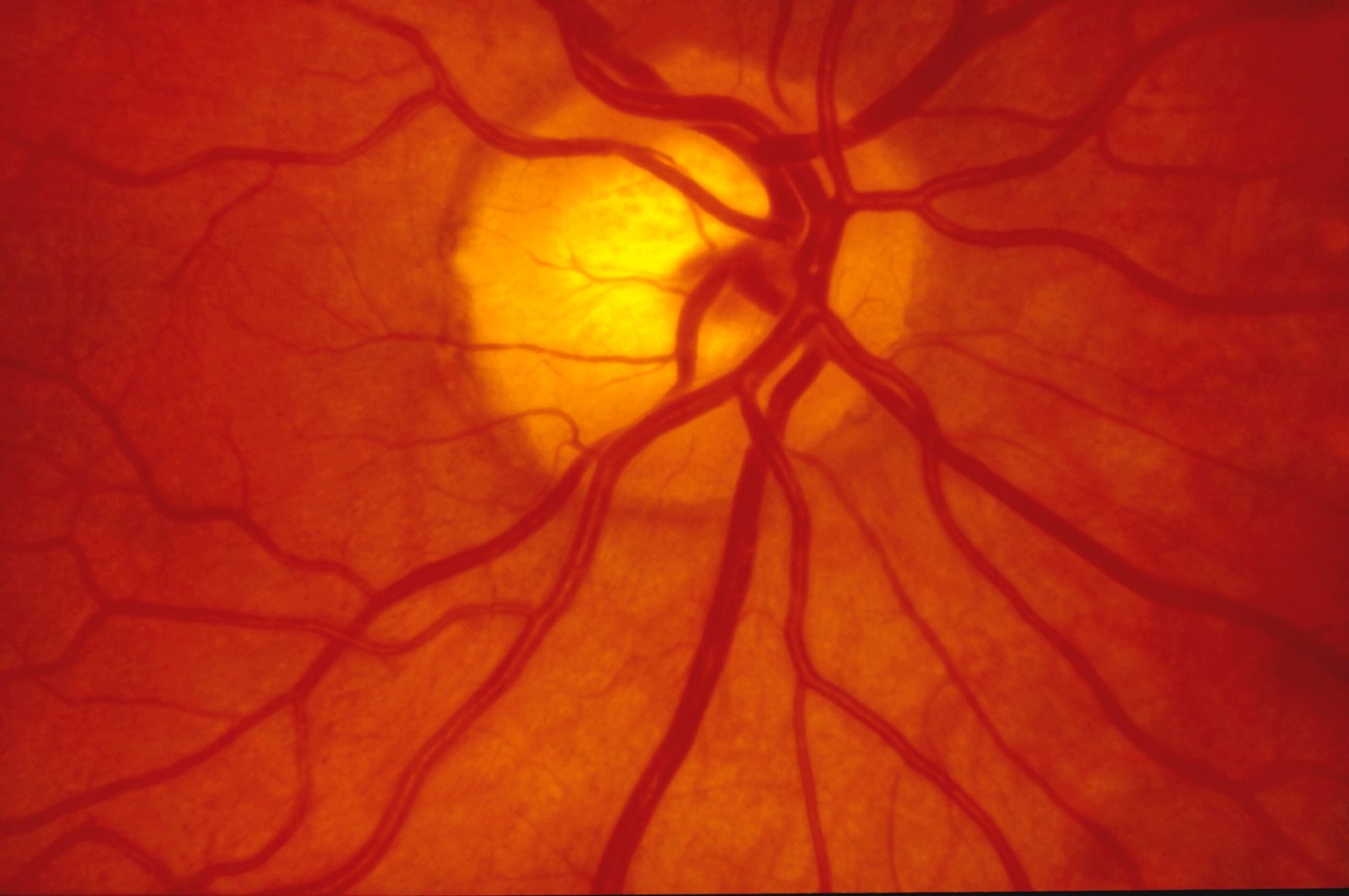Your eyes are among the most intricate and sensitive parts of the body, and the retina plays a critical role in how you perceive the world.
Located at the back of the eyeball, the retina is a thin layer of tissue that focuses light and transmits visual information to the brain. Any damage to the retina can severely affect or even destroy your ability to see.
At Desai Eye Institute and Research Centre, we provide state-of-the-art retinal care in Vadodara, diagnosing and treating retinal disorders with precision and compassion. The key to combating sight loss is early recognition of warning signs and seeking prompt treatment.
Understanding Retinal Disorders
Retinal disorders are a group of conditions that impact the retina and its ability to process visual information. They may range from mild to severe and can result from:
- Age-related changes
- Eye injuries or trauma
- Physical or mental illnesses
- Genetic or hereditary factors
Common Retinal Disorders
- Diabetic Retinopathy: Damage to the retinal blood vessels due to uncontrolled diabetes.
- Retinal Detachment: Occurs when the retina pulls away from its normal position, risking permanent vision loss.
- Macular Degeneration: Causes blurred or distorted central vision due to damage to the macula (central part of the retina).
- Retinal Vein/Artery Occlusion: Blockage of blood flow to the retina, which can lead to sudden vision loss.
- Macular Hole or Epiretinal Membrane: Structural abnormalities of the macula that affect central vision.
Important Warning Signs of Retinal Problems
Recognizing early symptoms can make the difference between saving and losing your sight.
- Sudden Flashes of Light
Seeing bright flashes, especially near the edge of your vision, can indicate a retinal tear or detachment.
Medical Emergency: Visit an eye hospital in Vadodara immediately to prevent permanent blindness. - New or Increased Floaters
Floaters are small, dark shapes or thread-like strands drifting across your vision. While common, a sudden increase may signal bleeding in the eye or retinal detachment. - Blurred or Distorted Central Vision
If straight lines appear bent or wavy, this may be a sign of macular degeneration or macular hole. Early diagnosis is key to preserving vision. - Shadow or Curtain Across Vision
A dark shadow or curtain moving across your field of vision is a strong indicator of retinal detachment and requires urgent treatment. - Sudden Loss of Vision
Even brief loss of vision in one eye may be caused by retinal vein or artery occlusion. Timely medical intervention is critical.
Risk Factors for Retinal Disorders
While retinal conditions can affect anyone, certain factors increase the risk:
- Age 54 or older
- Uncontrolled diabetes
- Hypertension or cardiovascular disease
- Eye injuries or past eye surgeries
- Family history of retinal diseases
- Severe nearsightedness
Being aware of these risk factors can help you decide when to schedule a retinal examination or seek advanced eye surgery and treatment in Vadodara before permanent damage occurs.
Diagnosis: How We Detect Retinal Disorders
At Desai Eye Institute, we use advanced diagnostic technology to detect retinal conditions early:
- Optical Coherence Tomography (OCT): Produces high-resolution images of the retina.
- Fundus Photography: Captures detailed pictures to monitor changes over time.
- Fluorescein Angiography: Assesses blood flow in the retina.
- Visual Field Tests: Measures peripheral vision loss.
Our comprehensive diagnostic approach ensures accurate detection and timely treatment.
Treatment Options for Retinal Disorders
The best treatment depends on the type and severity of the condition. Common treatments include:
- Laser Therapy
Used to seal retinal tears, stop abnormal blood vessel growth, and prevent further damage. - Intravitreal Injections
Medications are injected into the eye to treat macular degeneration, diabetic retinopathy, and retinal vein occlusion. - Vitrectomy Surgery
Surgical removal of the vitreous gel allows the retina to be reattached, macular holes to be closed, and bleeding to be controlled. - Lifestyle Adjustments
For diabetic patients, controlling blood sugar, blood pressure, and cholesterol plays a vital role in protecting vision.
Importance of Early Detection
The most effective way to slow the progression of retinal disorders is through regular eye examinations.
- Yearly check-ups are recommended for those over 40.
- Diabetic patients and other high-risk individuals should undergo more frequent monitoring.
Early detection ensures that patients can receive advanced eye care in Vadodara, preserving vision and quality of life.
Why Choose Desai Eye Institute and Research Centre
Our facility is recognized as one of the most trusted centers for retinal care in Vadodara.
We provide:
- Cutting-Edge Technology: Globally recognized diagnostic and surgical tools.
- Experienced Specialists: Highly trained retinal surgeons and ophthalmologists.
- Integrated Services: From retinal diagnosis to advanced surgical care — all under one roof.
- Personalized Treatment Plans: Tailored to each patient’s goals and medical history.
This combination of precision, expertise, and compassionate care makes us the preferred choice for retinal treatments.
Beyond Retinal Care – Comprehensive Eye Care
In addition to retinal services, we offer treatment for:
- Cataracts
- Glaucoma
- Corneal disorders
- Dry eye disease
This ensures complete, holistic eye care for our patients.
Conclusion
As the saying goes, “The eyes are the windows to the soul.” Keeping your retina healthy is essential for maintaining good vision and quality of life.
Flashes of light, curtain-like shadows, and sudden floaters are symptoms that should never be ignored. Your sight depends on choosing the right eye hospital in Vadodara and seeking timely treatment.
At Desai Eye Institute and Research Centre, we are committed to helping you preserve your vision for years to come.


